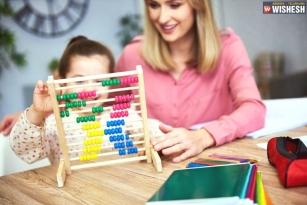
Effective Parenting Tips For Healthy Relationships:- Parenting is one of the biggest challenges everyone face in life. Especially when a child is growing parents will have many disagreements and arguments which would lead to disconnection of parent-child relationships.
In particular, parenting is a big responsibility as you can't judge them like a teacher by condemning their acts by saying it's good or bad. The respect we give and the communication we develop is the basic step in building healthier relationships with children. Understand the rooting of parenting, understand the conflicts and ensure to clear them.
A few basic things to be followed to build a healthier relationship with your children are as follows :
Understand Developmental Stages:
Every age is a challenge for parents. As a toddler kids are different and at schooling age they are more different. As teenagers, they need more independence. Parents should understand the age group of the kid and act accordingly following the perspective of the child.
Active Listening:
Always listen to your child. Parents might not listen to their children because of their preoccupied work, but parents need to listen to the child's perspective to understand the feelings and to create impact.
Choose Your Battles:
It's always better to stay quiet rather than involving in an argument with your child, stay quiet rather than argue with them for very simple issues. Children adopt nature from parents most of the time.
Stay calm and consistent:
Children are super smart, they can sense your mood, rather than exposing it on them, stay quiet and practice breathing.
Use I statements:
Rather than using You always forgot to do your work, use I am concerned about your studies and duties, I care about you and worry about your future. Framing the sentence is more important. Rather than blaming them, let them know how much you are concerned for them.
Offer Choices:
Children need to feel empowered, a very small choice of them makes them feel it. Let them take their decisions with boundaries.
Set Clear Boundaries:
Let the child have their own boundaries, and set them correctly, so in between the boundaries, they will have freedom of decision-making. Always let them remember their rules.
Professional Help:
If you are having more conflicts with your child, better to seek professional help rather than arguing more. It's very important to maintain harmony and empathy with your child by applying simple strategies.













